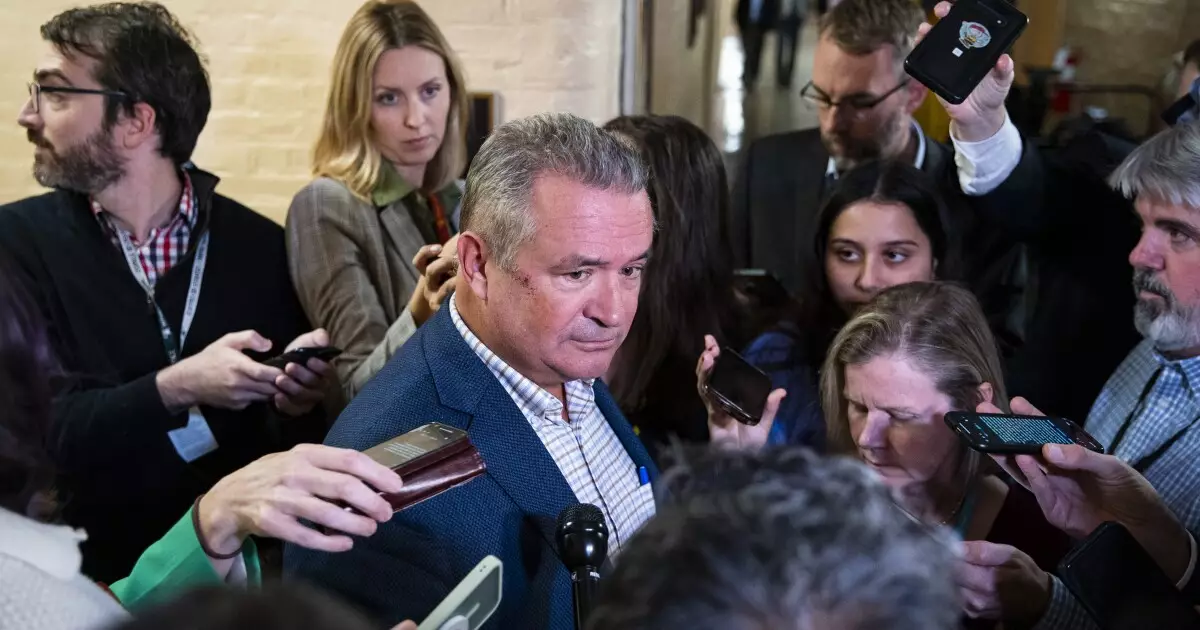In the intricate web of American fiscal policy, tax-exempt municipal bonds have been a cornerstone for funding infrastructure and facilitating local economic growth. As we approach pivotal legislative discussions, the call from Nebraska Representative Don Bacon underscores a vital truth: these bonds are not just financial instruments—they are lifelines for cities and communities across the nation. Politicians from both sides of the aisle must recognize the broader implications of dismantling this tax exemption and heed the urgent plea to preserve it.
The Economic Imperative
Tax-exempt municipal bonds provide an efficient avenue for state and local governments to raise capital for essential projects ranging from highways to hospitals. By allowing municipalities to borrow funds without the burden of federal taxes, these bonds lower borrowing costs and promote investment in public infrastructure. It’s imperative to understand that the economic ripples from these projects extend far beyond immediate financial savings; they foster job creation, promote community engagement, and enhance the quality of life within local populations. A loss of this funding mechanism would catalyze unintended consequences—specifically, economic stagnation in smaller towns and rural communities that depend on these bonds.
Political Dynamics and Potential Risks
Given the current political climate, the threat to tax-exempt municipal bonds looms large as lawmakers explore various avenues for revenue generation. The Republican Party’s ambitious tax package may inadvertently target these bonds as a quick financial fix. However, a short-sighted approach could lead to devastating repercussions. It’s incumbent upon conservative lawmakers to weigh the benefits of economic growth against the allure of immediate fiscal gain. The aim should not be to balance the budget at the expense of community vitality but to foster conditions where local economies can thrive organically.
The Very Real Stakes for Rural America
Contrary to a monolithic view of America’s urban landscape, rural areas are often the most vulnerable when it comes to financing public works. The National League of Cities has rightly flagged the preservation of tax-exempt bonds as crucial, particularly for small towns and villages that operate on tight budgets. These communities rely heavily on local initiatives and small-scale projects funded through these bonds to create jobs and improve infrastructure. The domino effect of losing this funding could trigger an economic collapse in these areas, exacerbating the disparity between urban and rural America.
The Role of Bipartisan Support
If we are to consider the future viability of tax-exempt municipal bonds, bipartisan cooperation is essential. Bacon’s initiative resonates on a level that transcends party lines, proving that local governance and fiscal responsibility are universal priorities for all legislators. His efforts to solicit signatures for a “Dear Colleague” letter represent an opportunity for lawmakers to publicly reaffirm their commitment to their constituents. The support from diverse backers, including organizations advocating for local control, indicates a potential for consensus that should not be overlooked.
Future Impact and Legislative Responsibility
Legislators must take a stance based not only on current political expediency but also on the long-term implications for community well-being. It is their duty to consider how choices made today will affect their constituents tomorrow. Recognizing the power and necessity of tax-exempt municipal bonds isn’t merely an economic position, but a moral one. It is a commitment to nurturing local businesses, upgrading essential services, and essentially maintaining an environment where people can thrive.
A Clarion Call for Action
As deliberations continue, it’s critical for concerned citizens and local leaders to galvanize their representatives to take definitive action. They must advocate for the continuation of tax-exempt municipal bonds as a proven tool for economic stimulation. With rising costs of living and increased infrastructure demands, dismantling this financial instrument is a risk we cannot afford to take. The message from grassroots organizations and constituents should be clear: preserving tax-exempt municipal bonds is not merely a financial issue, but a matter of community survival.
Keeping this conversation alive is essential as we face an uncertain future and navigate the tumultuous waters of fiscal policy. It’s not just about preserving an exemption; it’s about securing the very foundation of our communities.


Leave a Reply